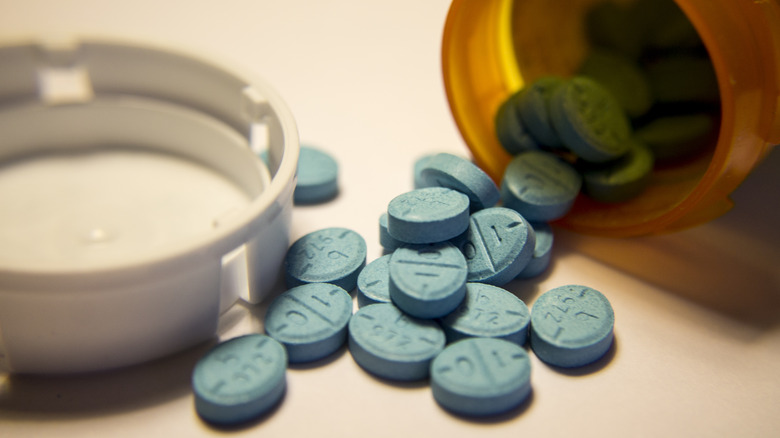Is Social Media Causing An Increase In Adult ADHD?
Attention-deficit/hyperactivity disorder (ADHD) is a common mental disorder that can cause difficulty concentrating, hyperactivity, and impulsiveness (via Medical News Today). Most people are diagnosed with ADHD in their childhood and manage the condition for the rest of their lives. However, experts are noticing that more adults are being diagnosed with the condition in recent years. It is believed that almost 3% of adults live with ADHD and that the majority of them are undiagnosed. The increase in adults being diagnosed is positive for people who have struggled with the condition but have not sought medical care due to misinformation, the stigma around the disorder, and poor understanding of ADHD.
Some experts believe that the increase in adults being diagnosed with ADHD is due in part to social media. Social media has brought the vast knowledge of the world to the fingertips of most people. Many doctors have social media accounts and are able to share information about ADHD in a digestible way that may cause some people to seek a potential diagnosis. There is also a lot of misinformation about this condition and many others online, so it is important to only take advice from certified health professionals.
Treatment options for ADHD
If you are diagnosed with ADHD, there are a few different treatment options that your doctor may pursue depending on the severity of your condition. According to the CDC, it is recommended that children under six years old are not given medication until behavioral therapy is tried first. Behavioral therapy will help a child understand which of their behaviors are disruptive to others and how to correct those behaviors in a healthy way.
If therapy and behavioral treatments do not work or if you are an adult, medication is often the best way to treat moderate to severe ADHD. The two main types of ADHD medication are stimulants and non-stimulants. Stimulants, which include medications like Adderall and Ritalin, increase the amount of dopamine and norepinephrine in the brain. This can improve concentration and focus in people who have difficulty with those actions normally. Non-stimulants, which include antidepressants, increase the amount of norepinephrine in your brain. This can help with attention and memory. If you think you have ADHD, speak with your doctor about a diagnosis.


